Classic Movie Review: 50 Years of 'The Holy Mountain'
Jodorowsky's visionary work or art, The Holy Mountain turns 50 years old this year.
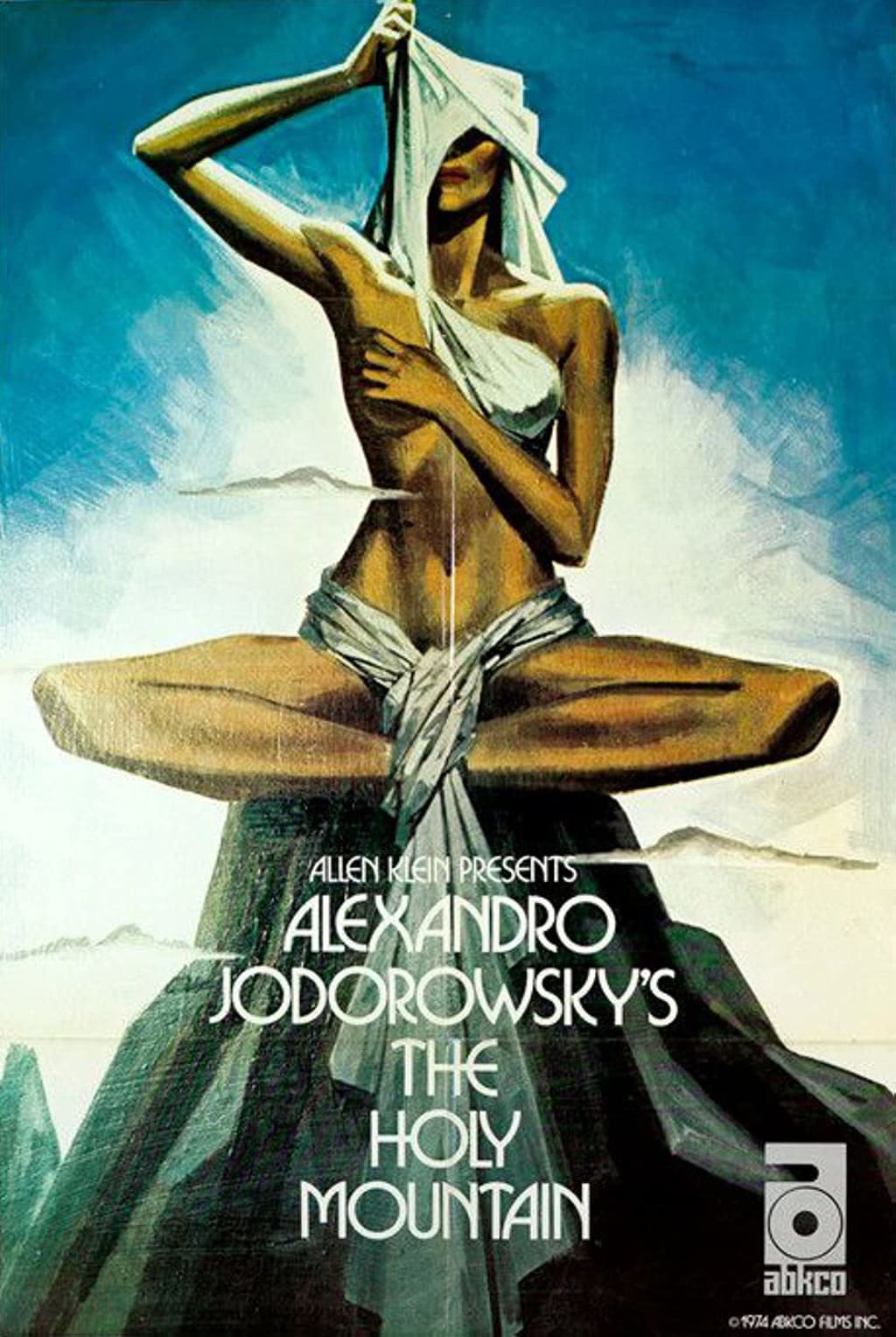
The Holy Mountain (1973)
Directed by Alejandro Jodorowsky
Written by Alejandro Jodorowsky
Starring Alejandro Jodorowsky, Horacio Salinas Zamira Salinas
November 27th, 1973
Published May 15th, 2023
Is The Holy Mountain a movie or an experience? Perhaps it is both. I'm not sure exactly what it is but, it had a major effect on me. Written and directed by Alejandro Jodorowsky, the movie is a wildly political, deeply esoteric and visually daring film of extraordinary ambition. Watching The Holy Mountain is what I imagine it must be like to be drunk or high. I've never had a drop of alcohol or a single drug experience but observing the behavior of others in such states, I am reminded of how I felt watching The Holy Mountain. The film left me dizzy, delirious, occasionally giddy and left me needing a nap.
Every frame of The Holy Mountain could be a painting. Jodorowsky's talent for composition is extraordinary. The opening moments of the film both set the tone for the rest of the movie and do nothing to establish a recognizable story. Two nude women kneel next to a black clad person wearing a large black hat. The background is a psychedelic black and white. The person in the black hat proceeds to brutally and painfully sheer the hair from the women's heads. Why? I don't know but it is damn sure a striking series of visuals.
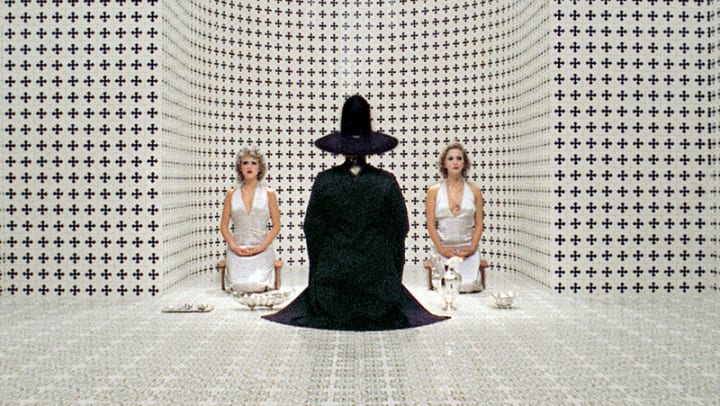
Our protagonist in The Holy Mountain is a man who vaguely visually associates with Jesus just before he was nailed to the cross. He has long brown hair, a beard, and a lanky, emaciated frame. Our Jesus stand-in is introduced lying in his own filth. Covered in flies, urine flowing around him, and a general air of gross, the man is awakened when a bunch of naked children start throwing rocks at him. He flees. Eventually, our Jesus meets a tiny man with no legs or hands and the two become fast friends.
They travel to town where they witness a series of almost indescribable events that include a recreation of the fall of the Mayan people with the Mayans represented by Lizards and the invading Spanish portrayed by a plague level of frogs. The frogs destroy and consume the lizards as Jesus and his friend dance about. Meanwhile, soldiers arrive to break up the scene and one of the tourists breaks off to have sex with the soldier while her husband watches and calls on Jesus to capture the event on camera.
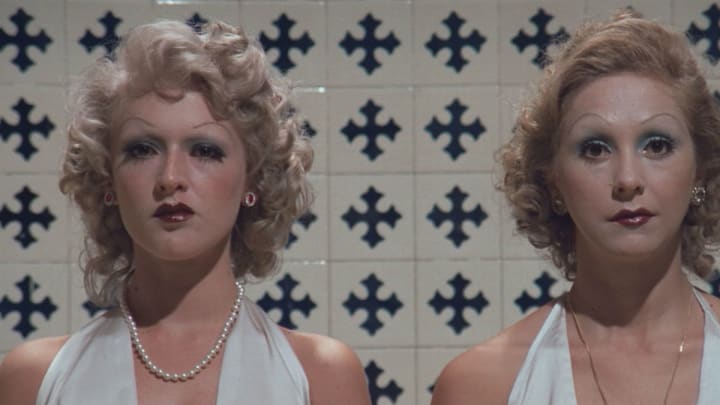
Eventually, our Jesus stand in realizes that his resemblance to Jesus could be a way to make some money. He begins accepting money to carry a giant cross while tourists snap photos of him. However, when he falls asleep, he's kidnapped by the same people who gave him the cross to carry. They proceed to make a plaster cast of him as Jesus on the cross and when our Jesus awakens, he finds a room full of plaster versions of himself as Jesus and suffers intense despair before destroying all but one of these plaster Jesus's.
I have left out so many things. You have no idea. And what I have described thus far is maybe 20 minutes into the movie, at most. The Holy Mountain only gets wilder from here with sequences that it would take pages to try and summarize and then assess the meaning of. Let's just say that what is still to come in The Holy Mountain amounts to a series of artistic allegories regarding corporate greed, violence, sexism, religious corruption, the death of the ego and the overall idea of what it means to transcend in the Emerson/Thoreau sense.
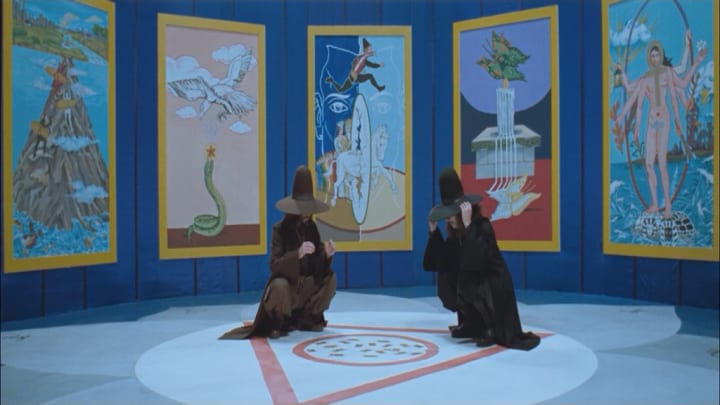
It's a lot and I am not sure I understood a lot of it or what I was meant to understand. Jodorowsky appears to want the viewer to take something away from The Holy Mountain that is just for them. At the same time, he's not without a very personal, political perspective. Much of that boils down to greed is bad, corruption is bad, and everyone is susceptible to, and or affected by, these societal ills. We can try to assign more depth to Jodorowsky but the basic message is a leftist perspective that is deeply opposed to the corrupting influence of capitalism and generally suspicious of anything that represents a capitalistic status quo.
The Holy Mountain is also deeply suspicious of power unless it is the power of the director himself. Jodorowsky casts himself, quite notably, in the role of a know it all guru who puts our protagonist and a series of strange, sort of villains, those whose corruption he both exploits for maximum visual interest, but also condemns for their overall corrupt nature and dedication to various sins. It is the director himself who will exploit the corruption of these villains and our protagonist by leading them to the Holy Mountain on the promise of the secret to eternal life.
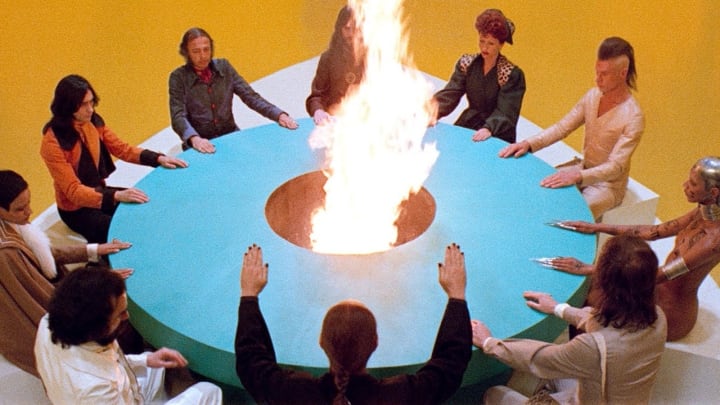
Naturally, it's all a ruse. He's taking their money while stripping them, literally and figuratively, of their identities. He leads them all to the Holy Mountain only to reveal that there is no secret to eternal life and that none of them actually exists at all. The Holy Mountain is a movie and he is the director, ordering the camera to pull back to reveal his film crew. Jodorowsky then tells everyone to leave The Holy Mountain and that real life awaits us. And that's The Holy Mountain. If you think I have spoiled anything, I assure you, I have not.
It would be impossible to spoil The Holy Mountain. This isn't a traditional story, it's a series of visual experiences that may or may not have a deeper meaning. That deeper meaning depends on how you take to the heady visuals before you. It's entirely up to you how you take in the images of The Holy Mountain, how you decide what the visuals mean to you. The Holy Mountain acts upon the viewer, it puts you on your heels and forces you to confront uncomfortable and yet, often quite beautiful images, and forces you to see for yourself how you feel about all of the visual stimulation.
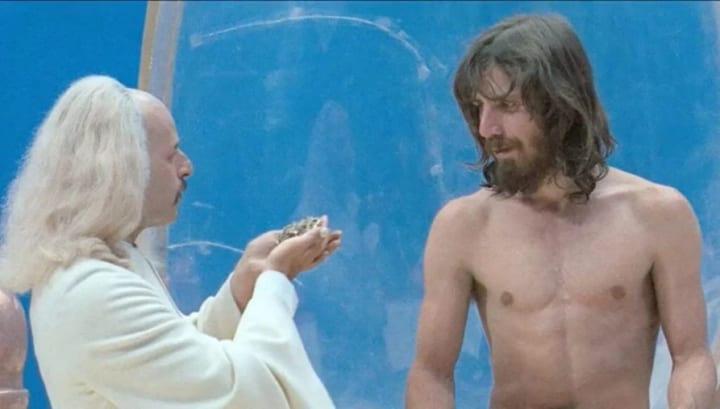
The Holy Mountain is not for everyone. I can imagine many audiences deciding that the film is a lot of pretentious flapdoodle. I get that. For me, I found the film incredibly challenging. It's so weird and hard to take. It made me uncomfortable but it also dazzled me visually. I was challenged by the ideas at play but a lot of the ideas were ones that I was bringing to bear on the visuals Jodorowsky was presenting. It's a bit of a chicken or the egg situation. Did Jodorowsky plant these ideas in my head or were they already there and I was merely waiting for a reason think about them?
If you don't enjoy media like that, The Holy Mountain is not the movie for you. It is however, a movie for me. As uncomfortable and challenging as it is, The Holy Mountain acted upon me like few movies ever had. I was reminded of the heady, dizzying, and often horrifying images of Ari Aster, a modern director capable of crafting dynamic visuals that linger in your imagination similar to the way Jodorowsky's images do. Aster works in the horror genre and adheres more to classic types of storytelling, far less esoteric and experimental than Jodorowsky, but just as effective in how they act on the audience.
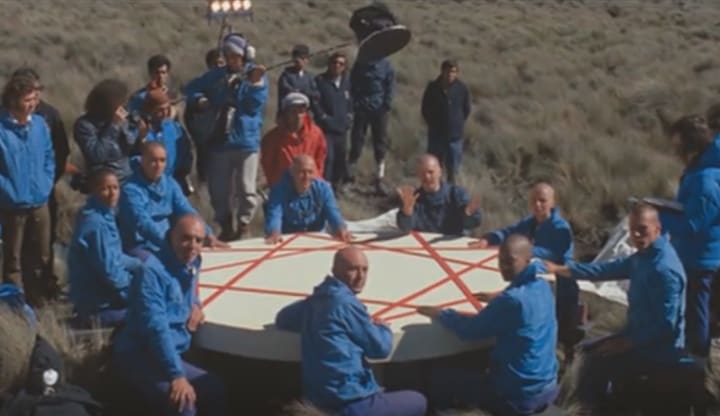
I'm fascinated by movies capable of eliciting visceral physical reactions through visual stimulation. Most movies just play in front of you. Only a few present visual stimulation that you feel like a physical act, as if the movie were reaching into your mind to shove your brain around. I find experiences like that exciting and Jodorowsky and Ari Aster share that kind of ability; the ability to create visual stimulation that creates a seemingly physical response, like a cramp in your mind. That is so much more exciting to me than any movie that is just sort of happening in front of me and is then just over.
Find my archive of more than 20 years and nearly 2000 movie reviews at SeanattheMovies.blogspot.com. Find my modern review archive on my Vocal Profile, linked here. Follow me on Twitter at PodcastSean. Follow the archive blog on Twitter at SeanattheMovies. Listen to me talk about movies on the Everyone's a Critic Movie Review Podcast. If you have enjoyed what you have read, consider subscribing to my writing on Vocal. If you'd like to support my writing career, you can do so by making a monthly pledge or by leaving a one-time tip. Thanks!
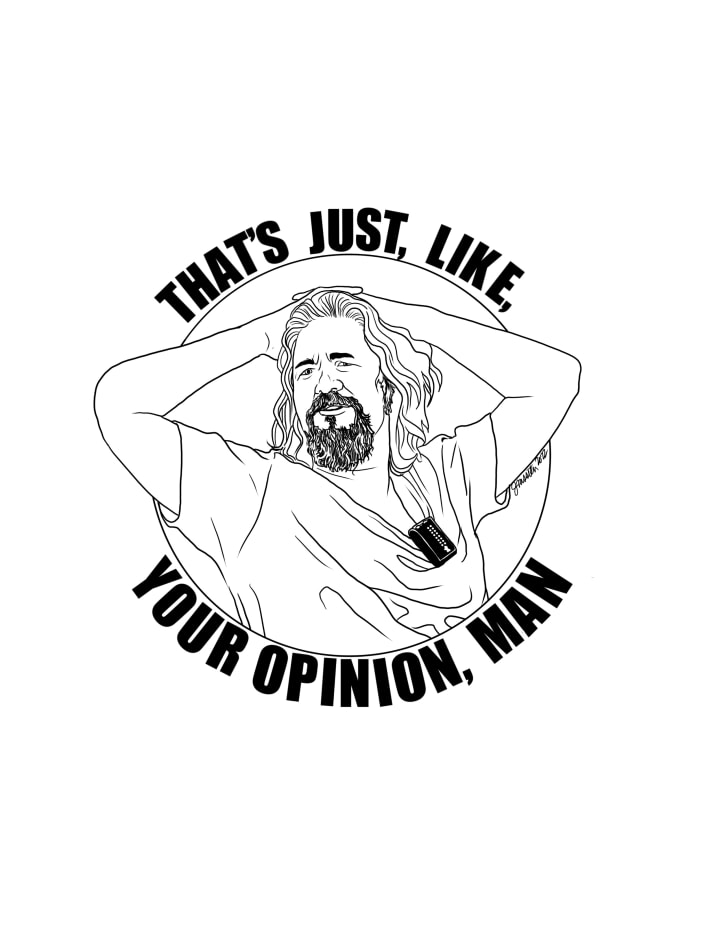
About the Creator
Sean Patrick
Hello, my name is Sean Patrick He/Him, and I am a film critic and podcast host for the I Hate Critics Movie Review Podcast I am a voting member of the Critics Choice Association, the group behind the annual Critics Choice Awards.




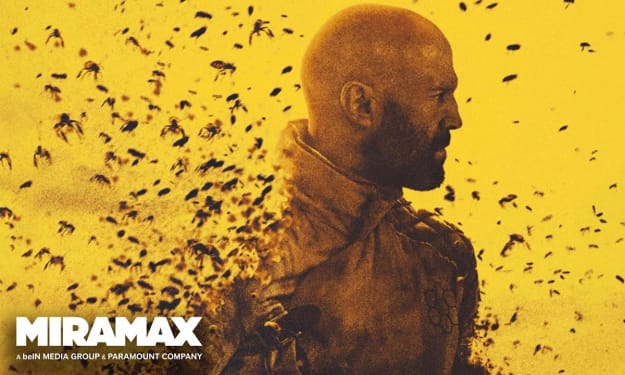

Comments (1)
And the moral of the story is...Don't Do Drugs! Seriously, the film unzipped my head when I rented it one night and did not find it in me to stop watching. A weird and wonderful product of its time. Thanks for this!